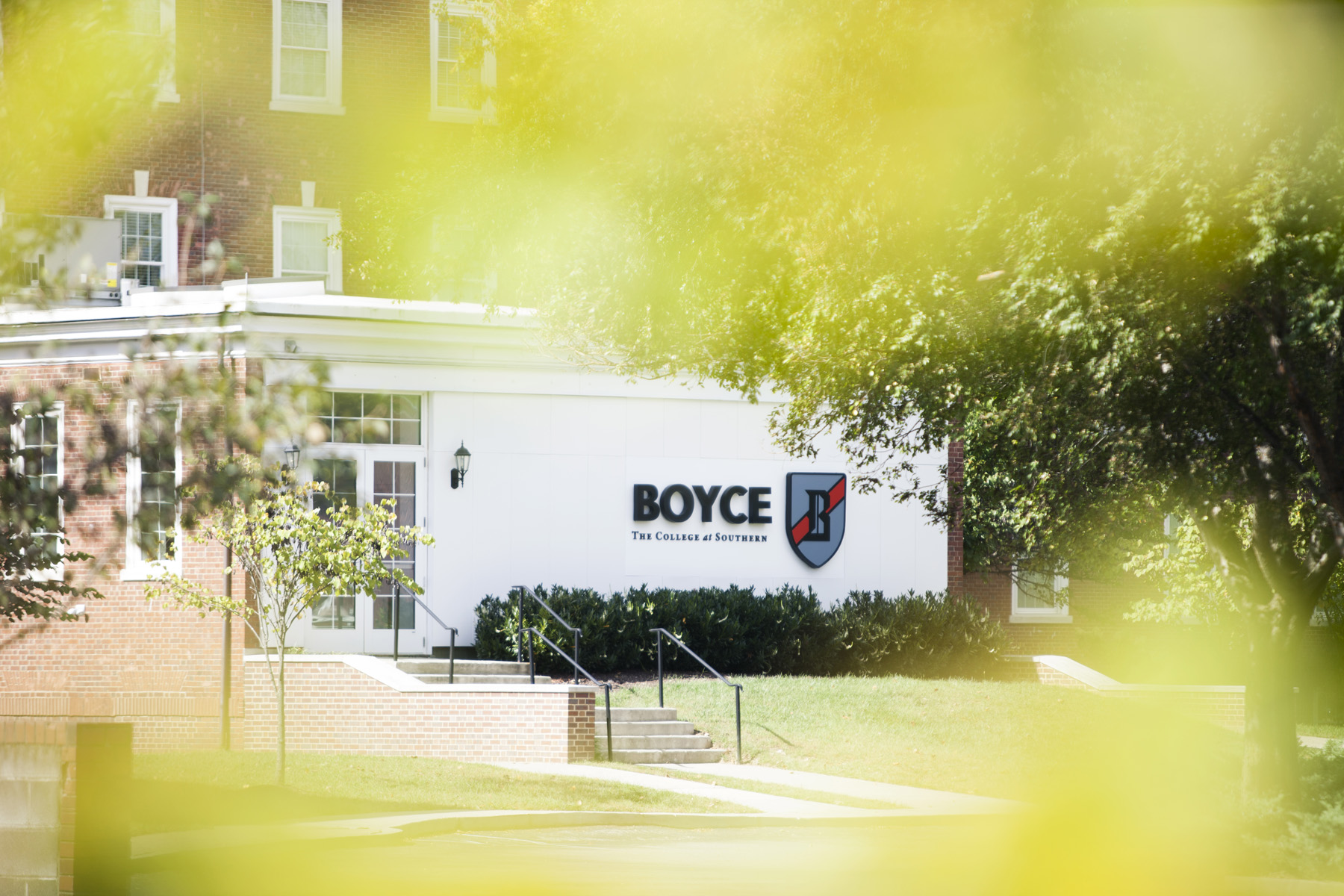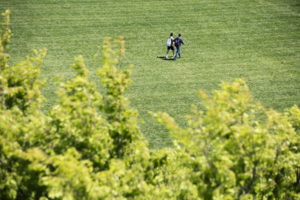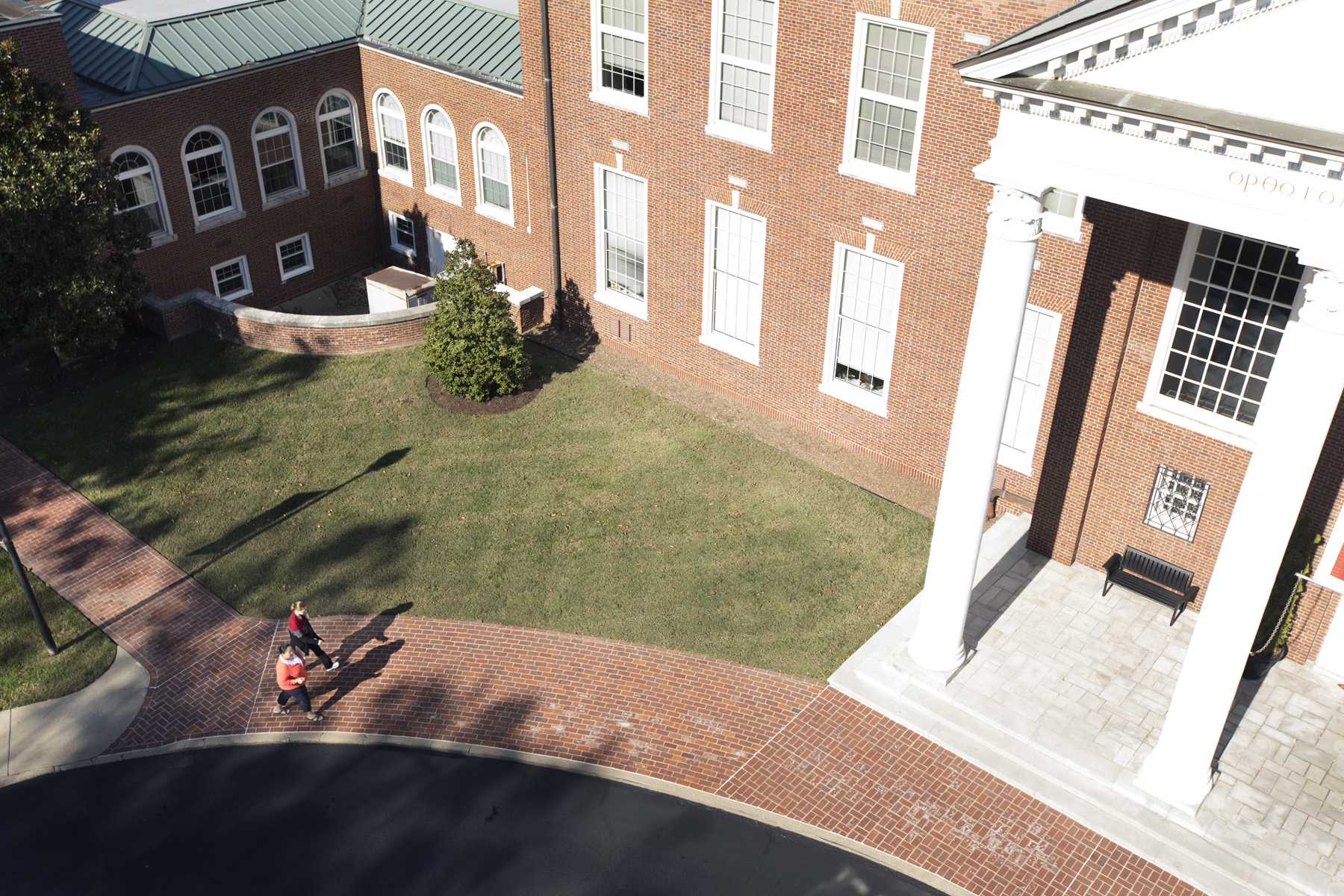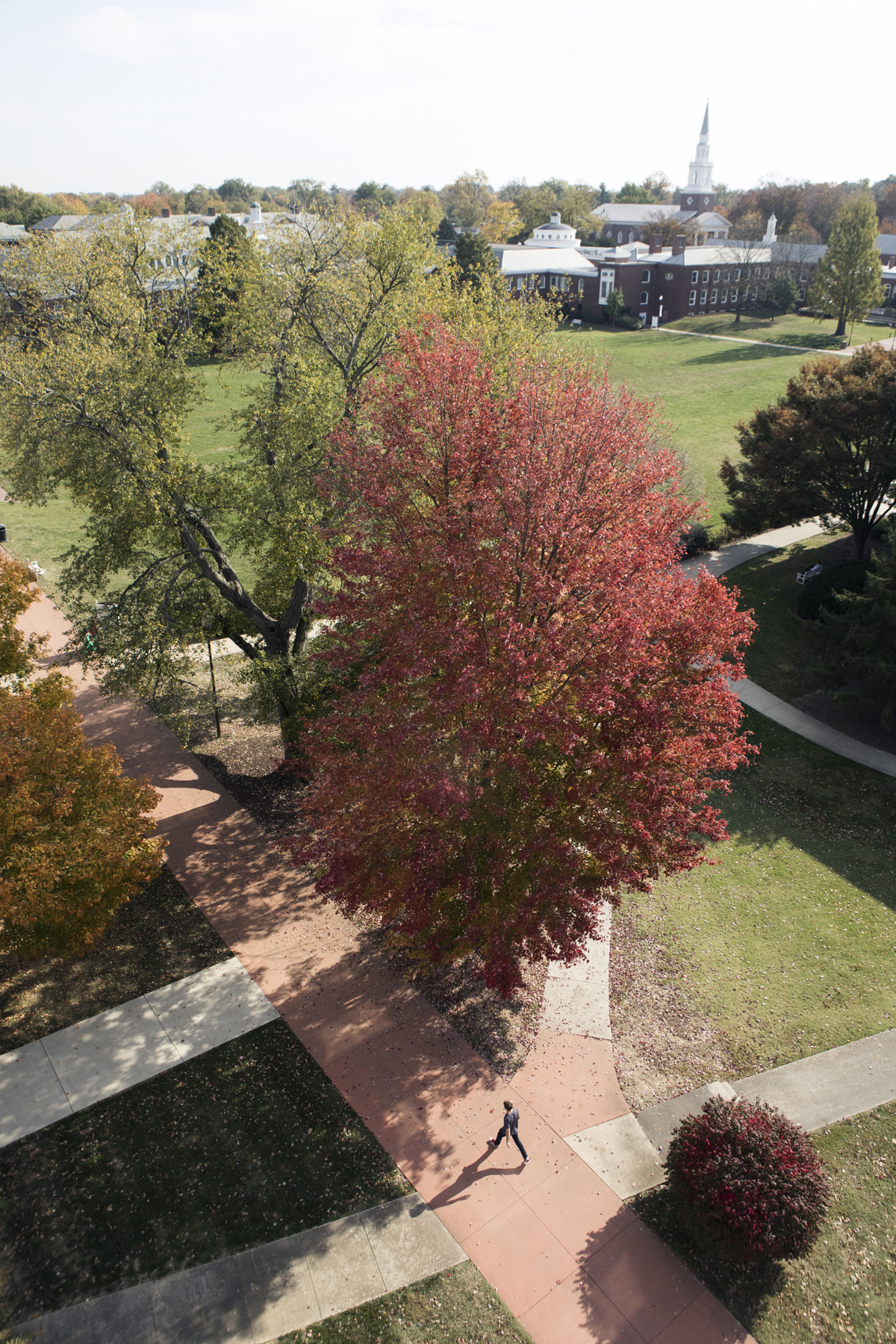The roots of Boyce College date back to 1974, when Southern Seminary launched the Boyce Bible School as a non-degree granting undergraduate program in ministerial training for pastors (primarily professional adults) without college prerequisites such as high school. The school’s first dean was David Q. Byrd, Jr., a prominent Southern Baptist preacher and seminary alumnus with a heart for missions and ministerial training. “Bible is our middle name, and we major on Bible,” said Byrd in describing the mission of the school. Byrd and his successor, Bob Johnson, grew the school into an increasingly prominent presence on the seminary campus. Throughout its history that spanned three decades, the school had graduated hundreds of students.
President R. Albert Mohler Jr. had an ambitious goal to transform the school into a fouryear degree-granting college, in accordance with the original vision of seminary founder James Petigru Boyce. Referencing Boyce’s influential 1856 address “Three Changes in Theological Institutions,” Mohler intended for the school to provide first-class instruction to those students entering theological education for the first time, fulfilling Boyce’s desire that the seminary always ensure accessibility to meet the ministerial and missional needs of Southern Baptist churches.

On October 14, 1997, the seminary trustees approved Mohler’s plan to relaunch Boyce Bible School into a fully accredited, four-year Bible college, the first such institution among the six Southern Baptist seminaries. Proclaiming the seminary’s theological direction firmly “anchored” upon “the great central doctrines of the Christian faith,” Mohler championed this decision as proof of the seminary’s growing “forward momentum” in actualizing its vision for Christian higher education. With student enrollment having increased by 20 percent for three consecutive semesters and the securement of unprecedented monetary gifts in the 1996-97 fiscal year, Mohler sensed the perfect opportunity to expand the scope of the seminary’s undergraduate institution.
President R. Albert Mohler Jr. had an ambitious goal to transform the school into a four-year degreegranting college, in accordance with the original vision of the seminary founder.
Renamed as the James P. Boyce College of the Bible, the undergraduate school reopened on August 1, 1998; the name was officially simplified to Boyce College the following year. In recommending his vision for the college at the seminary’s semiannual board meeting, Mohler reiterated his commitment to Boyce’s vision:
“The Boyce College of the Bible is designed to offer a traditional Bible college education of the highest quality to the thousands of Southern Baptists who do not yet hold a college degree, but have been called by God to the ministry of the Gospel. … This is a distinctively Baptist vision for theological education, for it recognizes that our churches and ministers require differing levels of study and education. … Our goal should be to provide programs of the finest quality and highest faithfulness to all those called of God to serve our churches.”
The curriculum at Boyce College consisted of specialized training in theological, biblical, and ministerial studies. Theodore Cabal joined the seminary community as the rechristened college’s first dean, leading other full-time faculty members that included David Adams, Chad Owen Brand, David DeKlavon, Hal Ostrander, Mark Howell, and Charles Draper in the first academic year. Cabal expressed his desire for Boyce students to receive a “first-rate instruction in theological disciplines” and to “understand and respond biblically to a variety of worldviews challenging the church today.”

Regarding the vision for Boyce College, Danny Akin, then senior vice president for academic administration, stated he and Mohler “envisioned a school that would immerse students in the Bible, theology, and worldview issues. We also wanted a school that would challenge them to be Great Commission ministers with a heart and passion for the billions of lost persons around the world.”
Student enrollment growth was exponential, from an inaugural class of less than 100 students to over 200 students (B.A. and B.S. degree programs) two years later; Boyce College recorded 680 bachelor’s degree students enrolled by the 2003-04 academic year, its sixth year of operation.
Student enrollment growth was exponential, from an inaugural class of less than 100 students to over 200 students two years later; Boyce College recorded 680 bachelor’s degree students enrolled by the ’03-’04 academic year.
In 2001, health concerns caused Cabal to resign his position, but he continued to labor in the classroom as a seminary professor. Jerry Johnson became his successor in the role of Boyce College dean in 2002. Having previously served as an SBTS trustee from 1989 to 1998, Johnson played a critical role as a seminary trustee in steering the trajectory of the institution into a theologically conservative direction and the eventual election of Mohler to the presidency. Johnson had previously joined the Boyce College faculty as an instructor of Christian ethics in 2001, prior to the completion of his doctoral dissertation.

Johnson was succeeded in the deanship by Jimmy Scroggins in 2004, who led the college until 2008, when he was called away to a thriving pastorate in Palm Beach County, Florida.
After its initial six years of rapid enrollment growth, Boyce College fell into an eight-year slump of gradual numerical decline. However, the Seminary continued to recruit excellent scholarship and invest in the college.
New Testament scholar Denny Burk led the school as dean from 2008 until 2011, and the young scholar brought added exposure as a commentator on public affairs. Burk’s theological commitments were rooted in the historic Christian faith, as he articulated in his vision for Boyce College: “We are centered on the Word of God, so that we are training people who are doing all different kinds of work in the Kingdom of God who themselves are centered on the Word of God. From the way we think to the way that we do ministry, that is going to be the determining factor of everything we do because the Word is inerrant and infallible and the only rule for faith and life.”

Notable faculty additions to Boyce College under Burk’s oversight were influential young evangelical leaders such as Owen Strachan and Heath Lambert.
Following Burk was Dan Dewitt, who from 2011 until 2016 continued to advance the reputation of Boyce College as a desirable destination for Christian students preparing for increasingly diverse fields of ministry. Dewitt had already developed expertise working for the seminary in both institutional relations and the communications office, and he applied those skills to Boyce College with fruitful results.
In 2014, DeWitt led Boyce College in a complete rebrand of the college’s visual identity to communicate the sense of reliability and tradition at the foundation of the institution’s heritage.
For the past three academic years, Boyce College has seen enrollment totals greater than 1,100 students, and its Preview Days have hosted more than 1,000 prospective students with their families.
The trajectory of Boyce College’s enrollment reversed in the 2012-13 academic year, exceeded all recruiting and enrollment goals, and secured its largest incoming class of new students in the college’s history for the fall of 2014. To accommodate the influx of record enrollment, the seminary invested in a seven-month comprehensive renovation of the historic Mullins Hall complex, which was completed in time to welcome students for the 2014-15 academic year.
A substantial innovation to the pedagogical process came with the advent of the Seminary Track which allows students to earn both a Boyce College Bachelor of Arts and a Master of Divinity from Southern Seminary in as few as five years.
On the importance of the innovation of this new program, DeWitt said in an interview to Southern Seminary Magazine:
“Historically, Southern Baptists have placed the primary focus for ministry education at the graduate level … The result in Southern Baptist life, has been that most seminary-bound college students don’t give much consideration to undergraduate ministry studies. We wanted to address this in a way that rewards students who graduate from Boyce College and better streamlines their overall academic career … Of course, this means that a student could receive a master of divinity degree when they’re only 22 years old. What then? … I’ve encouraged students to consider following their graduation with the International Mission Board’s journeyman program, a church internship or an apprenticeship with a pastor. And for some students who desire further education, I encourage them to buckle in and enter a doctorate program.”
The first students to complete the Seminary Track program graduated with the class of 2016.
Further advancements in streamlining the educational process for students was the advent of the dual enrollment program, which allowed high school students the opportunity to earn up to 21 Boyce College credit hours, offering significant financial savings and minimizing the duplication of courses. Under Dewitt’s tenure, Boyce College also secured the services of highly credentialed young scholars, such as Oxford University graduate Jonathan Arnold.

Matthew Hall became the dean of Boyce College in 2016, and he has established a culture that emphasizes excellence in Christian scholarship. Notable accomplishments under Hall’s administration have been the launch of the honors program in August,2016 and the publication of the Augustine Collegiate Review in June 2017 (the seminary’s first officially-sanctioned, student-edited research journal since 2008), both under the faculty supervision of Jonathan Arnold. Remarking upon the launch of the journal, Hall stated, “It’s one thing to think clearly. It’s another thing entirely to develop the skill to transfer thought to a coherent paragraph. … [the Augustine Collegiate Review provides] students with an opportunity to be directly engaged with some of the most pressing questions and issues of our day.”
In his editorial to the journal’s inaugural issue, Arnold wrote:
“The academic publishing process can be difficult and even disheartening as authors submit the product of their hard work only to have editors and expert reviewers zero in on the minutest details. … Sometimes the critique proved positive and led either to publication or at least to more constructive work on the article. At other times, the critique left a surprising wound in the mind of the author. But in all of those cases, the students began to understand the invaluable (and seemingly unending) process of researching, writing, editing, and receiving critique on academic work.”
For the past three academic years, Boyce College has seen enrollment totals greater than 1,100 students, and its Preview Days have hosted thousands of prospective students with their families. The college has also launched several new academic programs, including the politics, philosophy, and economics major and the classical education minor. Now at completion of its 20th academic year, Boyce College continues to be a leader in theological education and ministerial training.
In James Petigru Boyce’s 1856 address, he famously said, “The day will yet come, perhaps has already come, when the churches will rise in their strength and demand that our theological institutions make educational provisions for the mass of their ministry.” In the course of the last 20 years, those demands have been answered.
––
Adam Winters is the archivist for the James P. Boyce Centennial Library at Southern Seminary. He earned a Ph.D. a American church history from the seminary in 2016.




